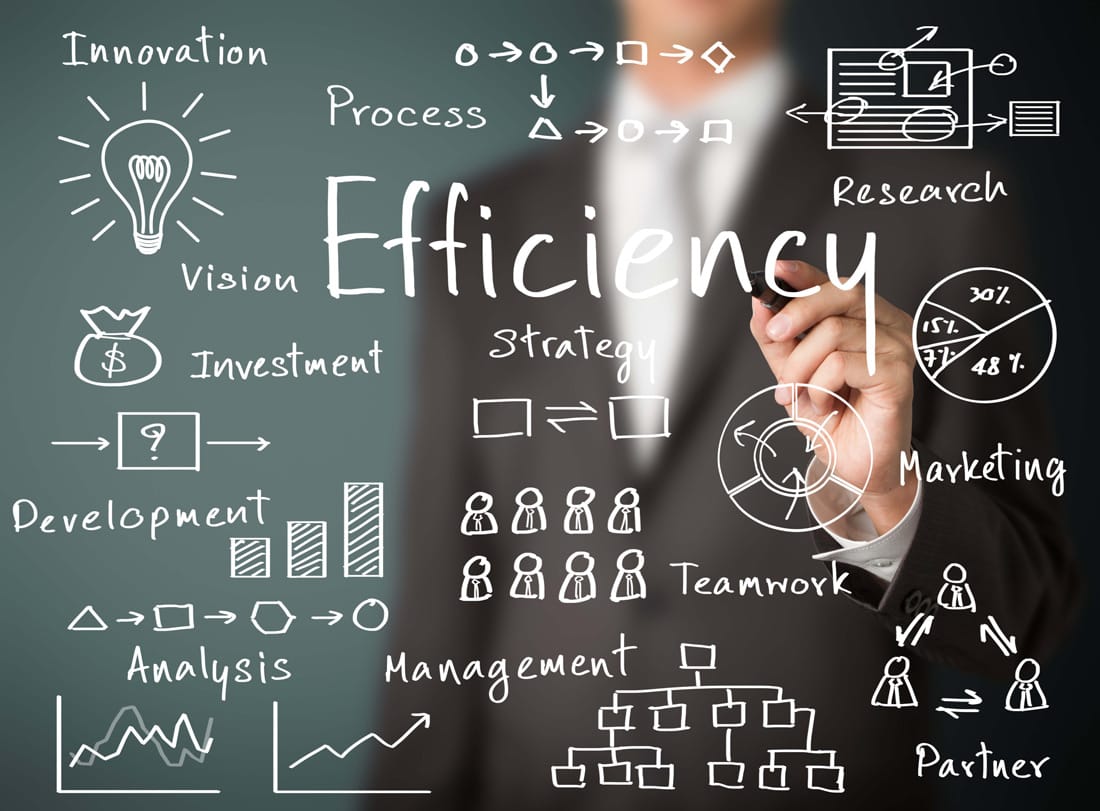“How do I make my business more efficient?” is a question business owners and CEOs are always asking me. While what constitutes “efficiency” might differ from one business to the next, an efficient business is one that delivers its products/services without excessive cost, effort or waste. The result of this focus on efficiency means such businesses can afford to deploy greater resources for growth-related operations (including research and development, sales, and marketing) while keeping expenditures down and profits high. Or, just maybe, if you’re an owner/operator, you can work a few less hours in the week (and wouldn’t that be nice?).
So, how can you go about building more efficiency into your business? As any TAB Business Owner Advisory Board Member might tell you, look first into your own style of working and leadership and then the rest of the business:
1 - Get out of “reactive” mode. Too many CEOs waste valuable time and energy focusing on tasks that are urgent, but not important. “Putting out fires” shouldn’t be at the top of your job description. Click here to learn helpful tips to be more “active”.
2 – Delegation. Improving efficiency begins by looking closely at where you’re losing time, but this requires that you acknowledge when you’re being stubborn and when you’re refusing to let go of the reins. In other words, start delegating today.
3 – Be specific – very specific. Never hold a meeting without a specified purpose and time-limit. Let’s face it - company meetings are inefficient. We call them for vague reasons, inviting too many (and therefore, the wrong) people, and no one dares suggest the meeting should end sooner, rather than later. Stop this madness today.
4 – Smaller time slices. Look at the possibility of convening a 5- or 15-minute meeting of the day or stand up meeting where team members can quickly describe their current work situation and then release people to go do their jobs.
5 – Communicate clearly. Often business don’t have a centralized method for sharing valuable information. With modern technology, there’s no excuse for not keeping everyone in the loop. Whether through video conferencing or cloud-based systems, don’t sacrifice efficiency due to miscommunication or other related issues.
6 – Motivation. Pay attention to team morale. Happy team members are generally more productive and efficient. When you go to the trouble of hiring smart, talented people, it only makes good business sense to see that they’re well compensated, enjoy great benefits and have continuous opportunities for development. Click here to learn 8 tips to boost employee morale.
7 – Outsource as much as you can. Your business is very good at making and/or delivering a product or service to customers. It may not be particularly efficient in certain key operational areas, such as IT, HR, accounting, and so on. In all these areas, outsourcing these services to companies who focus on providing efficient service to client companies may costs less than what your business spends now internally – and it allows you to focus on what you’re great at.
8 – Plan for the worst. Always have a disaster management plan in place. It may not be a flood or earthquake or tsunami, but some unforeseen event can cripple your business if you don’t plan. Being efficient includes contingency planning and devoting resources and information to take decisive action if a natural or man-made disaster occurs. Commit to a comprehensive analysis of specific potential threats and what you can do to mitigate them. Itemize your most valuable assets and layout crisis-management steps to keep these assets safe and secure.
Want more advice on making your business more efficient? Find out if a TAB Board is right for you!
